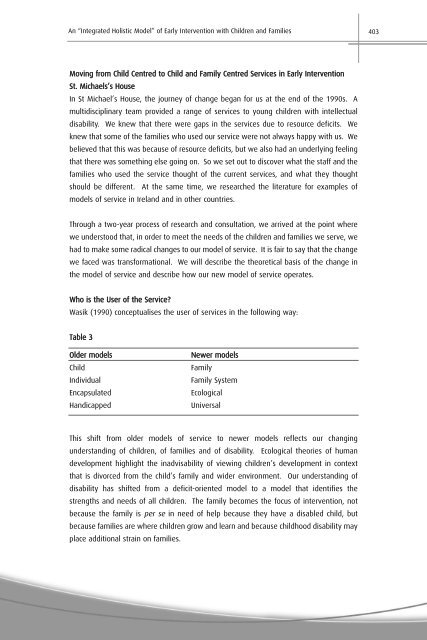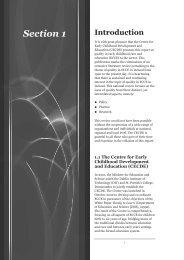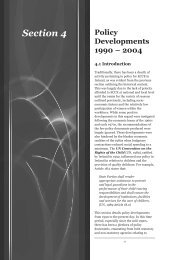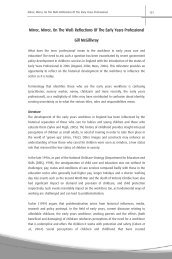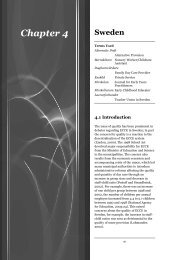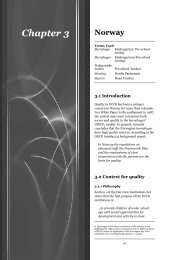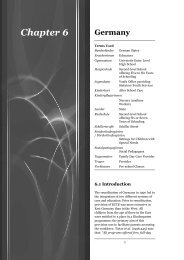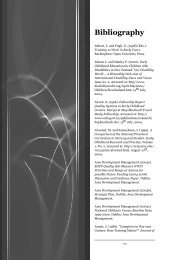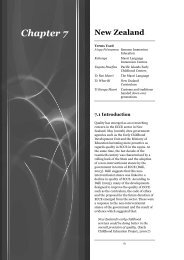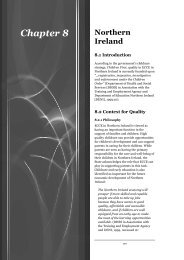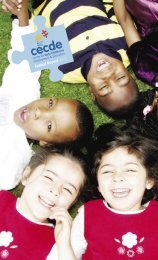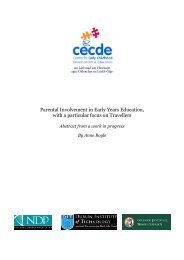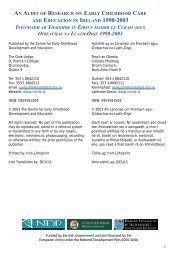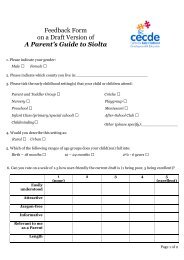Integrated Holistic Model - Centre for Early Childhood Development ...
Integrated Holistic Model - Centre for Early Childhood Development ...
Integrated Holistic Model - Centre for Early Childhood Development ...
You also want an ePaper? Increase the reach of your titles
YUMPU automatically turns print PDFs into web optimized ePapers that Google loves.
An “<strong>Integrated</strong> <strong>Holistic</strong> <strong>Model</strong>” of <strong>Early</strong> Intervention with Children and Families 403Moving from Child <strong>Centre</strong>d to Child and Family <strong>Centre</strong>d Services in <strong>Early</strong> InterventionSt. Michaels’s HouseIn St Michael’s House, the journey of change began <strong>for</strong> us at the end of the 1990s. Amultidisciplinary team provided a range of services to young children with intellectualdisability. We knew that there were gaps in the services due to resource deficits. Weknew that some of the families who used our service were not always happy with us. Webelieved that this was because of resource deficits, but we also had an underlying feelingthat there was something else going on. So we set out to discover what the staff and thefamilies who used the service thought of the current services, and what they thoughtshould be different. At the same time, we researched the literature <strong>for</strong> examples ofmodels of service in Ireland and in other countries.Through a two-year process of research and consultation, we arrived at the point wherewe understood that, in order to meet the needs of the children and families we serve, wehad to make some radical changes to our model of service. It is fair to say that the changewe faced was trans<strong>for</strong>mational. We will describe the theoretical basis of the change inthe model of service and describe how our new model of service operates.Who is the User of the Service?Wasik (1990) conceptualises the user of services in the following way:Table 3Older modelsChildIndividualEncapsulatedHandicappedNewer modelsFamilyFamily SystemEcologicalUniversalThis shift from older models of service to newer models reflects our changingunderstanding of children, of families and of disability. Ecological theories of humandevelopment highlight the inadvisability of viewing children’s development in contextthat is divorced from the child’s family and wider environment. Our understanding ofdisability has shifted from a deficit-oriented model to a model that identifies thestrengths and needs of all children. The family becomes the focus of intervention, notbecause the family is per se in need of help because they have a disabled child, butbecause families are where children grow and learn and because childhood disability mayplace additional strain on families.


